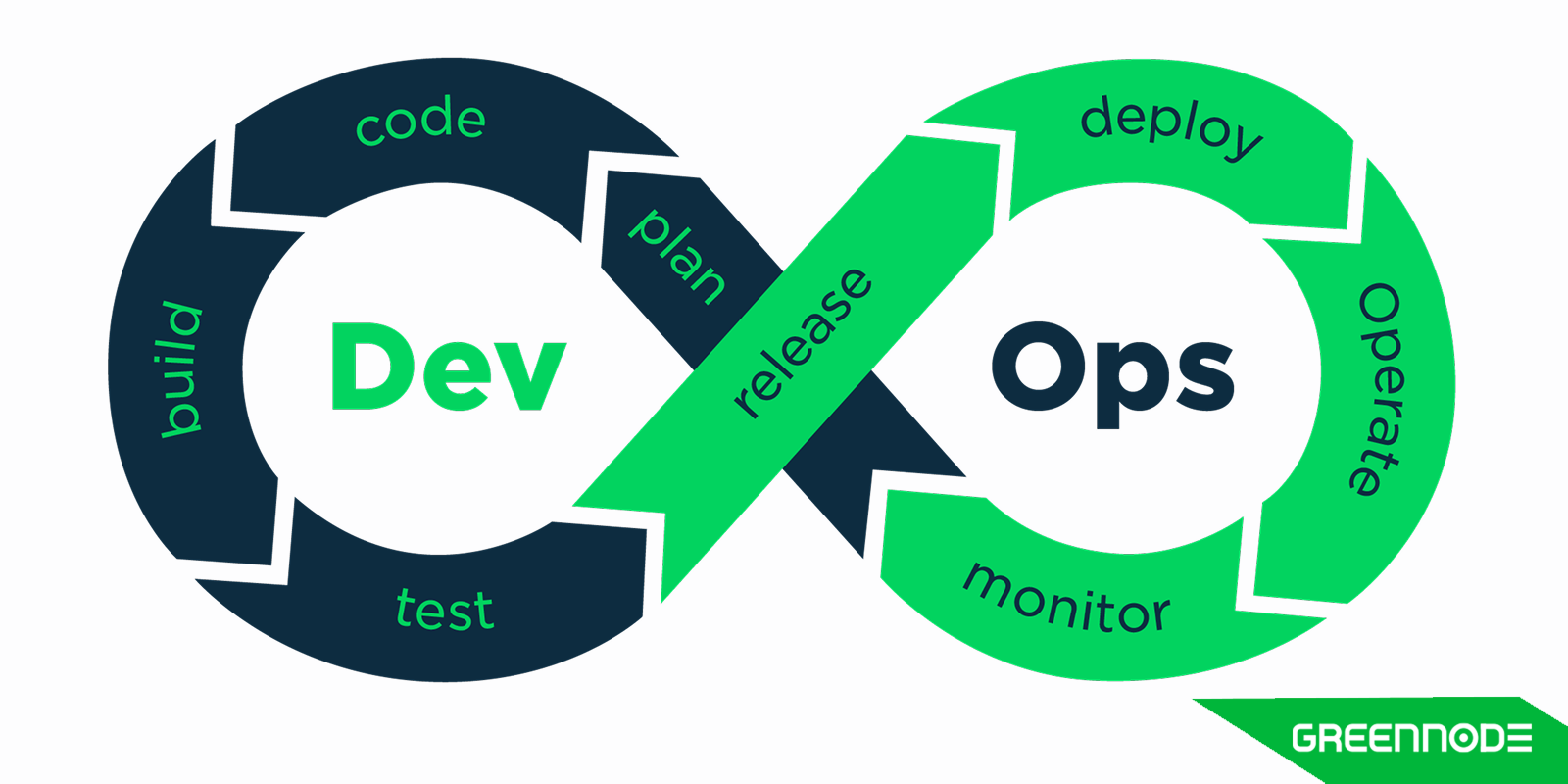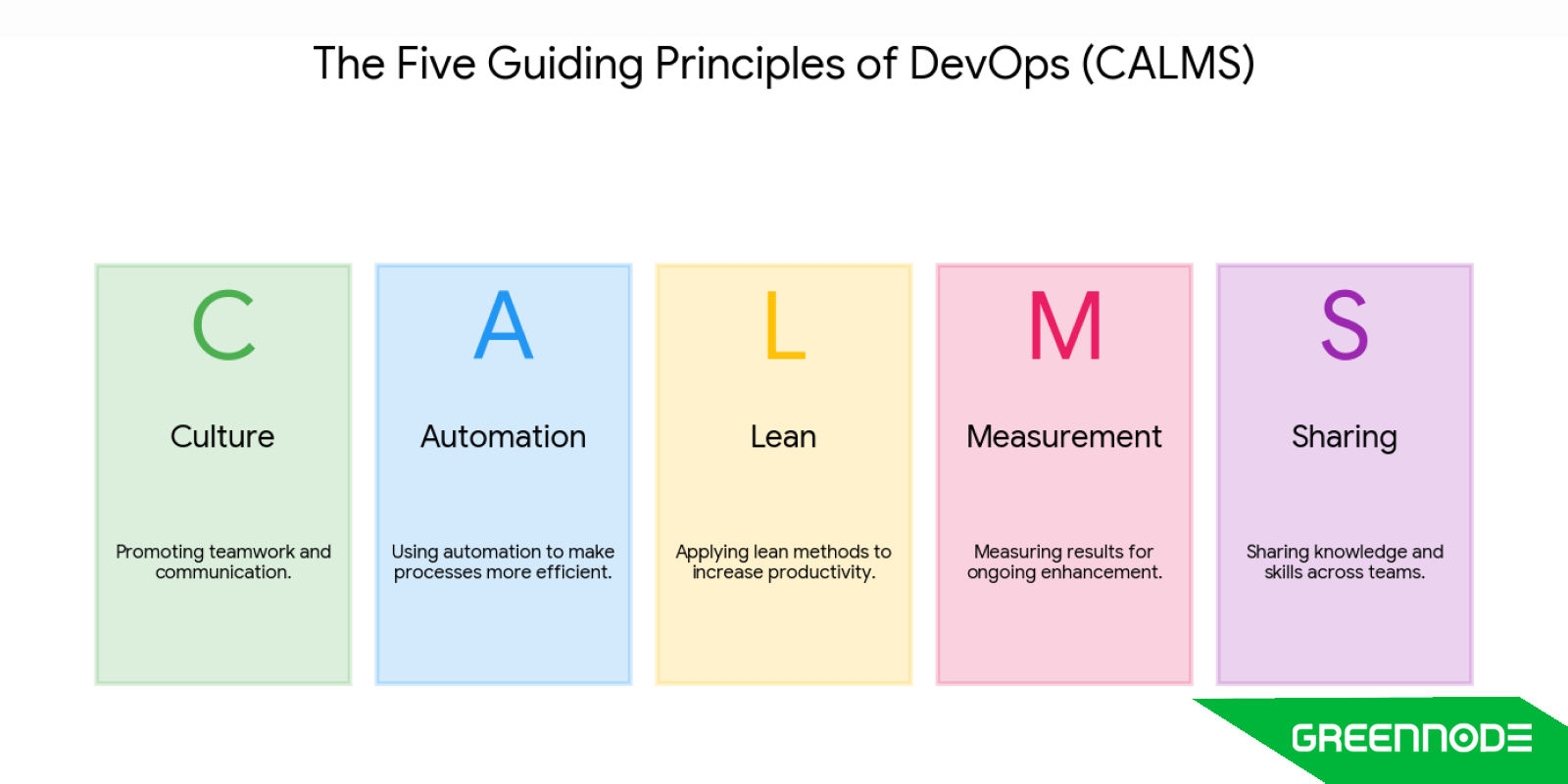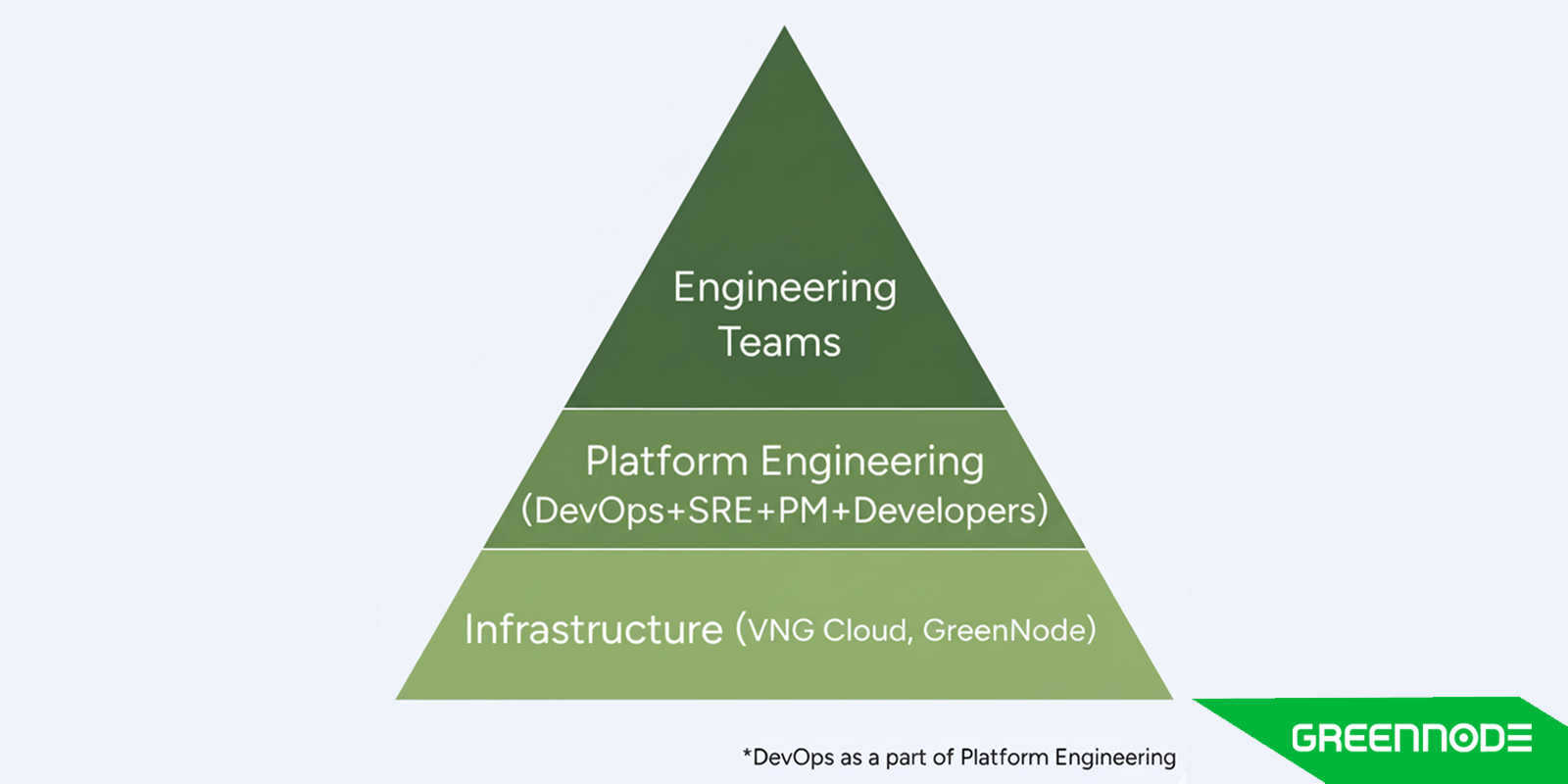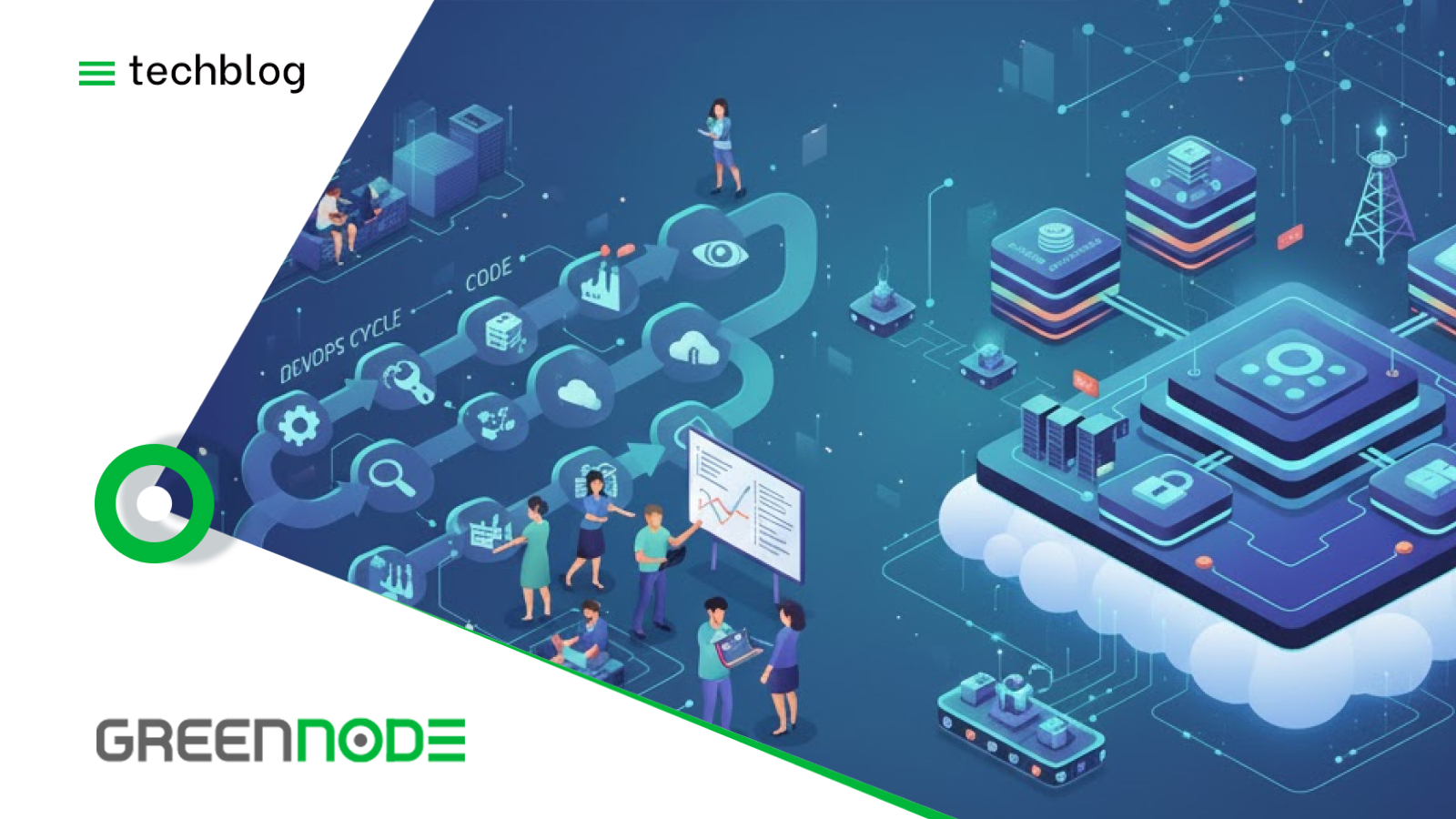Platform engineering vs DevOps represent two of the most crucial disciplines shaping modern software development today. While often discussed together, they operate on different but complementary levels. While DevOps defines how development and operations should work together culturally, Platform engineering provides the mechanism and tooling (the IDP) to achieve that collaboration and automation efficiently, ensuring a responsive and robust strategy for the digital era.
In this blog, we’ll help you understand the key differences between Platform engineering vs DevOps, explore the transition from a broad cultural movement to a dedicated product-focused practice designed explicitly to reduce developer cognitive load.
Understanding DevOps
DevOps began in the late 2000s as a solution to the isolated working methods of traditional software development and IT operations. It arose in response to critiques of traditional waterfall software development methods, which were seen to slow innovation and create organizational barriers and bottlenecks.

At its core, DevOps is a cultural and operational philosophy that bridges the traditional gap between software development (Dev) and IT operations (Ops). Instead of treating these as two separate functions, DevOps promotes continuous collaboration, automation, and shared responsibility throughout the entire software delivery lifecycle. Let’s dive deeper into its definition, benefits, and how it applies to reality.
What is DevOps?
DevOps is a software delivery method that represents a cultural movement or progressive approach to software development. It is a blend of the terms 'Development' and 'Operations'.
At its heart, DevOps is built on five guiding principles, often summarized by the acronym CALMS:
- Culture: Promoting teamwork and communication.
- Automation: Using automation to make processes more efficient.
- Lean: Applying lean methods to increase productivity.
- Measurement: Measuring results for ongoing enhancement.
- Sharing: Sharing knowledge and skills across teams

In essence, DevOps represents a mindset shift rather than a single tool or process. It calls for organizational change aimed at shortening the software development lifecycle while continuously delivering updates, fixes, and features aligned with business goals.
By integrating development and operations through automation, collaboration, and continuous improvement, DevOps ensures faster releases, greater reliability, and a stronger feedback loop between engineering teams and end users.
What are The Benefits of DevOps
The adoption of DevOps practices has fundamentally changed the software development and deployment process. Key benefits of DevOps include:
- Increased Efficiency and Speed
- Improved Quality and Reliability
- Enhanced Collaboration and Culture
- Process Optimization
Increased Efficiency and Speed
One of the biggest advantages of adopting DevOps is the ability to bring products to market faster. By streamlining workflows and improving collaboration between teams, organizations can shorten development cycles and respond more quickly to customer needs, gaining a clear competitive edge.
DevOps also enables a higher deployment frequency, as integrated teams can detect and resolve issues earlier in the process, reducing delays and improving overall reliability. Combined with Continuous Integration and Continuous Delivery (CI/CD) practices, this approach allows for quicker and more frequent releases, ensuring that new features, updates, and fixes reach users faster and with greater consistency.
Improved Quality and Reliability
DevOps practices also lead to more dependable and higher-quality releases. Through automated builds and testing enabled by CI/CD pipelines, teams can identify and fix issues earlier, resulting in smoother and more reliable deployments. This automation not only reduces the number of deployment failures but also allows for faster recovery when problems do occur, minimizing downtime and disruption.
Ultimately, by embedding continuous integration, testing, and delivery into every stage of development, DevOps drives consistent product quality and a more stable user experience.
Enhanced Collaboration and Culture
DevOps fundamentally transforms how teams work together by fostering collaboration, transparency, and shared responsibility. By breaking down the long-standing silos between development and operations, it encourages open communication and joint problem-solving, leading to faster, more efficient workflows. This cultural shift not only enhances productivity but also improves the overall quality and reliability of software delivery.
At its core, DevOps is built on a philosophy of continuous improvement where teams consistently refine processes, adopt new tools, and optimize performance based on real-time feedback. Through the adoption of agile practices, organizations become more responsive to change, adapting quickly to evolving business or technical requirements.
Moreover, tight feedback loops enable faster iterations, increased deployment frequency, and better visibility into the system’s health, ensuring that every stakeholder from engineers to business leaders, remains aligned and informed.
Process Optimization
A core pillar of DevOps is automation, which plays a crucial role in eliminating inefficiencies and accelerating delivery. By leveraging a range of tools and best practices, DevOps teams can remove manual roadblocks, reduce human error, and ensure smoother handoffs between development and operations. This emphasis on automation leads to streamlined processes, where every stage of the software development lifecycle from code integration to deployment is optimized for speed and reliability.
Use Cases of DevOps
DevOps has evolved from a niche engineering practice into a standard operating model across industries, powering everything from SaaS applications to global fintech platforms and large-scale media streaming services. Its value lies in transforming software delivery from a slow, manual process into a continuous, data-driven pipeline that enables agility and reliability at scale.
- Continuous Integration and Continuous Delivery (CI/CD): is one of the most common applications when it automates code testing, integration, and deployment to dramatically reduce the risk of release failures. This approach allows teams to push updates multiple times a day instead of quarterly or monthly, without sacrificing stability.
- Infrastructure automation is another cornerstone use case. Tools like Terraform, Ansible, and Pulumi allow teams to provision and manage infrastructure as code, ensuring consistency across environments and eliminating the manual errors that often lead to deployment delays.
- Equally critical are monitoring and feedback loops, which provide the visibility needed for continuous improvement. Using observability platforms such as Prometheus, Grafana, or Datadog, DevOps teams can detect anomalies, measure system performance, and proactively prevent downtime before it impacts users.
Real-world leaders such as Netflix, Amazon, and Spotify demonstrate the impact of DevOps at scale: running thousands of microservices, deploying hundreds of updates daily, and maintaining near-zero downtime. Their success proves that when DevOps principles are executed well, they become a competitive advantage, enabling innovation to flow as continuously as the pipelines that support it.
Understanding Platform Engineering
If DevOps is the cultural foundation of modern software delivery, then Platform engineering is the practical evolution, turning philosophy into product. It’s about building the internal systems, tools, and workflows that make DevOps efficient, scalable, and developer-friendly.
What is Platform engineering?
Platform engineering is the discipline of designing, building, and maintaining Internal Developer Platforms (IDPs), integrated systems that give software teams everything they need to develop, deploy, and manage applications efficiently.
Instead of each team managing its own fragmented toolchains and environments, platform engineers create a centralized, self-service platform that abstracts complexity. These platforms are built with a product mindset: developers are treated as customers, and the platform itself becomes a product that helps them focus on writing code rather than managing infrastructure.
At its core, Platform engineering standardizes and automates DevOps practices across an organization. It integrates tools for CI/CD, monitoring, observability, and security into one unified experience, enabling consistent workflows and reliable environments for every team.
What are The Benefits of Platform Engineering
The implementation of Platform engineering offers several significant benefits, primarily by optimizing the software development lifecycle, enhancing developer productivity, and ensuring consistency across the organization. Here are the key benefits of Platform engineering:
- Improved Developer Productivity and Efficiency
- Reduction of Operational Complexity and Cognitive Load
- Consistency, Standardization, and Governance
- Better Realization of DevOps Benefits
- Financial and Organizational Advantages
Improved Developer Productivity and Efficiency
The primary mission of Platform engineering is to boost developer productivity and accelerate time to market. By creating stable, reliable platforms, organizations allow developers to focus solely on coding and building features.
Through self-service capabilities, such as internal portals or custom CLIs, developers can deploy infrastructure or services autonomously without waiting for operations support. This independence eliminates bottlenecks, reduces waiting times, and enables faster iteration cycles. The result is a streamlined workflow where teams encounter less friction and can move from idea to deployment faster than ever before.
Reduction of Operational Complexity and Cognitive Load
Platform engineering simplifies the developer experience by abstracting infrastructure complexity behind a unified interface. Instead of managing multiple tools, environments, or configurations, developers work within a standardized, well-defined ecosystem.
This reduction in operational noise significantly lowers cognitive load. Developers no longer need to become experts in every DevOps toolchain or cloud service. Internal Developer Platforms (IDPs) provide structured workflows and integrated automation, allowing teams to stay focused on innovation rather than infrastructure management.
Consistency, Standardization, and Governance
Another key strength of Platform engineering is its ability to bring consistency and governance across diverse development teams and projects. By enforcing standardized environments, security policies, and deployment practices, organizations achieve higher reliability and compliance.
This centralization reduces redundancy, as multiple teams no longer need to build and maintain their own toolchains or platforms. Instead, they share a single, secure, and optimized platform managed by platform engineers. This ensures uniform quality, predictable performance, and adherence to security best practices, creating a more stable and governed software ecosystem overall.
Better Realization of DevOps Benefits
While DevOps transformed culture, Platform engineering provides the practical framework to fully realize its potential. Recent studies show that 94% of organizations adopting Platform engineering report better success in achieving DevOps goals. Specific improvements include enhanced system reliability (60%), higher team efficiency (59%), and improved workflow consistency (57%).
Financial and Organizational Advantages
Beyond technical gains, Platform engineering delivers measurable financial and organizational benefits. By consolidating infrastructure and toolchains, organizations achieve better resource utilization and reduced operational costs.
Use Cases of Platform Engineering
Platform engineering delivers tangible impact across modern software organizations by standardizing infrastructure, improving developer experience, and enabling scalability. Below are the key ways it’s applied in real-world environments:
- Building Internal Developer Platforms (IDPs): The core application of Platform engineering. IDPs provide developers with a unified, self-service platform to deploy infrastructure, manage CI/CD pipelines, and monitor systems autonomously, reducing friction and improving efficiency. Examples include Spotify’s Backstage and Humanitec.
- Streamlining Kubernetes and Cloud Operations: Platform teams build abstraction layers that simplify container orchestration and multi-cloud management. This allows developers to deploy workloads without deep cloud or Kubernetes expertise while maintaining governance and performance.
- Standardizing Environment Provisioning: Automated environment creation ensures consistency across development, staging, and production. With Infrastructure as Code (IaC) and built-in policy controls, teams eliminate configuration drift and increase deployment reliability.
- Supporting AI, ML, and GPU-Accelerated Workflows: Internal platforms now extend to AI and ML operations, enabling data teams to access GPU clusters, train models, and deploy inference workloads easily.
- Scaling DevOps Across the Enterprise: By offering a shared, standardized foundation for all DevOps teams, Platform engineering eliminates duplicated toolchains and ensures alignment. This enables large organizations to scale DevOps efficiently while preserving flexibility.
Also read: How to Deploy Machine Learning Models Efficiently and At Scale
Platform Engineering vs DevOps: Key Differences
The discussion around Platform engineering vs DevOps has become one of the most important in modern software delivery. While both share the goal of improving collaboration, speed, and reliability, they operate at different levels of the engineering ecosystem. Here is the table summarizing the key differences between Platform engineering and DevOps:
Component | DevOps | Platform engineering |
| Fundamental nature | A cultural movement/approach to software development. A conceptual mindset. Requires organizational change. | A practice, a separate process, or a tangible strategy for realizing DevOps outcomes. It is the act of creating one platform for DevOps tools and workflows. |
| Primary purpose | Facilitate closer collaboration between development and operations to shorten the software delivery lifecycle. Emphasizes integrating development and operations to accelerate delivery cycles. | Build and maintain Internal Developer Platforms (IDPs). Provide a stable, reliable, and efficient platform that enables developers to focus on coding without worrying about the underlying infrastructure. |
| Mindset | Requires a project-based mindset. | Requires a product mindset. The platform's evolution is approached similarly to any other product, with developers treated as “customers”. |
| Working areas/Focus | Processes, collaboration, and culture. Focuses on integrating development and operations through continuous automation. | Infrastructure, tools, and technology. Focuses on building and managing internal platforms. Curates and maintains the various tools, services, and documentation development teams need. |
| Standardization | Promotes best practices but often results in teams picking their own tools and being responsible for mastering them. | Defines the tools DevOps teams use. Focuses on creating standardized environments and governance models to ensure compliance and efficiency. |
| Team composition/Audience | Everyone involved with software delivery contributes. Teams are a blend of development and operations professionals. Audience includes All internal stakeholders. | A dedicated team with a specific remit to support other developers. Team members include platform engineers, solution architects, and developer experience engineers. Audience is Developers and operators directly involved in the delivery lifecycle. |
| SDLC stages touched | Optimizations that shorten the loop between all stages, including planning, development, building, testing, deployment, operations, and monitoring. | Mainly touches the deployment, operation, and monitoring elements of a DevOps cycle. Fulfilling requirements from the build stage onwards. |
| Impact on developers | Fosters collaboration and shared responsibility. CI/CD pipelines, test suites, and IaC can be challenging for developers to utilize. | Provides stable, scalable, self-service platforms. Lowers cognitive load and increases fulfillment, allowing developers more time for meaningful progress on new product features. |
| Relationship | A culture or approach. Platform engineering is often considered a subset of DevOps or the foundation on which it can be built. | A practice or strategy. It is widely considered the next evolution of DevOps and a pragmatic way of implementing effective DevOps procedures. |
DevOps focuses on culture and processes: promoting automation, communication, and continuous improvement. Platform engineering, by contrast, represents the next evolution: it turns DevOps principles into tangible Platform engineering services and solutions that standardize tools, environments, and workflows across teams.
In short, DevOps vs Platform engineering isn’t a competition but a continuum. DevOps defines how teams work; Platform engineering defines what they work with. By leveraging modern Platform engineering tools and frameworks, organizations can deliver software faster, reduce developer cognitive load, and create scalable, secure infrastructure that aligns with business goals.

For enterprises seeking to scale DevOps efficiently, adopting Platform engineering solutions is the natural next step to enable a consistent developer experience and operational excellence across the entire software lifecycle.
Are organizations adopting Platform Engineering?
Are Organizations Adopting Platform engineering? Yes — and at an accelerating pace. Over the past few years, Platform engineering adoption has grown rapidly as organizations realize that DevOps alone can’t scale indefinitely without introducing operational overhead. According to a 2024 Gartner report, over 80% of large enterprises are expected to establish dedicated Platform engineering teams by 2026.
This shift reflects a growing recognition that Platform engineering services provide measurable business value: faster delivery cycles, improved developer experience (DevEx), and stronger governance. Enterprises with complex infrastructures, especially those operating across multi-cloud or hybrid environments, are turning to internal developer platforms (IDPs) to manage consistency and compliance while empowering developers with greater autonomy.
Leading technology companies like Spotify, Netflix, and DoorDash have already implemented mature Platform engineering practices, enabling developers to spin up environments, manage pipelines, and deploy services through self-service portals. This model is now spreading rapidly across industries like finance, healthcare, and AI, where automation, compliance, and performance are critical.
Current trends in Platform Engineering
As Platform engineering solutions mature, several key trends in 2025 are shaping their evolution:
- Developer Experience (DevEx) as a Core Metric: Organizations now treat developer experience as a first-class priority. Well-designed internal platforms minimize friction, reduce context switching, and improve overall team satisfaction and productivity.
- Rise of Open-Source Platform Engineering Tools: Tools like Backstage (by Spotify), Crossplane, and Humanitec are gaining traction for building IDPs. These frameworks allow platform teams to integrate CI/CD, monitoring, security, and compliance into unified workflows.
- Integration with AI and Automation: AI-driven automation is becoming a standard feature in Platform engineering services, optimizing resource allocation, scaling decisions, and failure recovery. Intelligent orchestration helps teams manage growing workloads with less manual effort. Also read: What is AI Model Training?
- Focus on Governance and Cost Optimization: Enterprises are embedding policy controls and FinOps visibility into their platforms to manage infrastructure costs and maintain compliance, especially across multi-cloud ecosystems.
- GPU-Accelerated Infrastructure for AI Workloads: With the rise of LLMs and GenAI, Platform engineering now extends into AI and machine learning operations. Teams are using GPU-based environments to manage distributed training and inference pipelines efficiently. Solutions like GreenNode GPU Compute are enabling this shift by offering scalable, high-performance compute clusters tailored for AI-driven workloads.
Final Thoughts: GreenNode Can Help
As organizations scale their software and AI operations, the line between DevOps and Platform engineering continues to blur but one truth remains clear: a strong, efficient platform is now the backbone of innovation.
At GreenNode, we empower engineering teams with the infrastructure and compute performance needed to build scalable internal platforms. Our GPU Compute solutions deliver low-latency, high-throughput environments optimized for AI training, inference, and automation, helping teams reduce complexity while accelerating delivery.
Explore GreenNode GPU Compute — your foundation for next-generation Platform engineering.
FAQs about Platform engineering vs DevOps
1. Is Platform Engineering replacing DevOps?
No. Platform Engineering doesn’t replace DevOps; it evolves it. DevOps introduced a culture of collaboration and automation between development and operations, while Platform Engineering takes those principles and turns them into scalable, productized solutions. In other words, DevOps is about how teams work, and Platform Engineering is about what they work with, the platforms, tools, and processes that make delivery faster and more consistent.
2. What is the main difference between DevOps and Platform Engineering?
The key difference lies in focus and execution. DevOps is a cultural and procedural philosophy focused on improving collaboration and shortening delivery cycles. Platform Engineering is a technical practice that builds internal developer platforms (IDPs) and automation frameworks to simplify infrastructure management, reduce cognitive load, and enhance developer experience. Together, they form a complete, scalable approach to modern software delivery.
3. Why are companies adopting Platform Engineering alongside DevOps?
Organizations are adopting Platform Engineering to scale DevOps more effectively. As teams grow, toolchains multiply, and environments become complex, maintaining consistency becomes difficult. Platform Engineering addresses this by centralizing infrastructure, standardizing workflows, and providing developers with self-service tools that streamline deployment. This not only boosts productivity but also enables enterprises to realize the full benefits of DevOps at scale.
